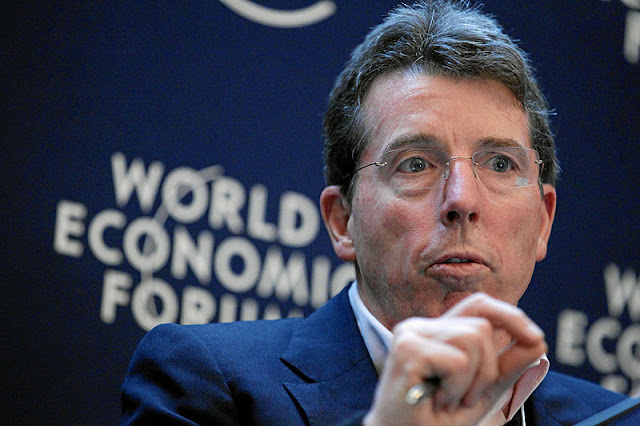But King was right, we do need a change of culture, but not just in the City of London, we need it throughout business and throughout our whole society. When I grew up in Britain in the 60s and 70 s there was a much greater culture of mutual support and solidarity than there is now. This stemmed, in large measure, from a sense of solidarity in adversity that developed during WWII, and a large factory-based working class that had jobs and pride in their work.
The aim of Thatcherism was to destroy that social solidarity and create a culture of selfishness and individual gain. In the 1980s it became smart to get rich quick and jump on what then seemed like a capitalist bandwagon that promised endless growth. Measures such as the sale of council housing, at knock down prices, contributed to the fact that many working class people thought they had "arrived" and that they were better off if not actually better than their forbears. We have had 30 years of relentless plugging of this Thatcherite culture by politicians and the capitalist media, and it has had a corrosive effect on our society at all levels, in politics, business and in our democracy. More than ever, in recent history, we have seen the revolving door in Westminster where politicians and senior civil servants have colluded in the privatisation of public assets, to be rewarded afterwards by lucrative jobs in the private sector.
 |
| Margaret Thatcher: "There is no such thing as society" |
Its not just a change of culture in the banks that we need, its a wholesale change of culture across British society. We need to re-establish the values of social justice, solidarity and equality, which made our society a much better place to live in the decades after WWII. We need to kick out commercialism from the public sector, re-establish the commons, and create a lasting systemic change. I think that millions of people want this kind of change. Many were never part of the Thatcherite revolution anyway. That change can only happen if people get involved in our democratic process and vote for parties and politicians who can deliver that change, and if they show social solidarity in their personal lives. And, believe me, its essential that we succeed in doing this because the crisis of capitalism isn't going away anytime soon, and, as we have seen with the flooding recently, we will have to come together to mitigate the worst effects of climate change.
